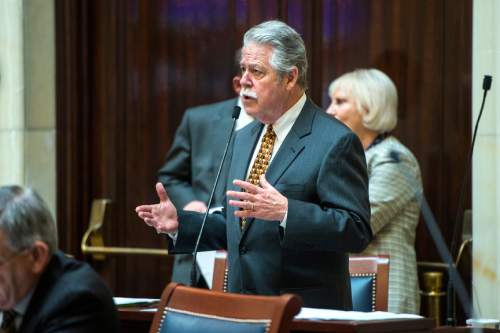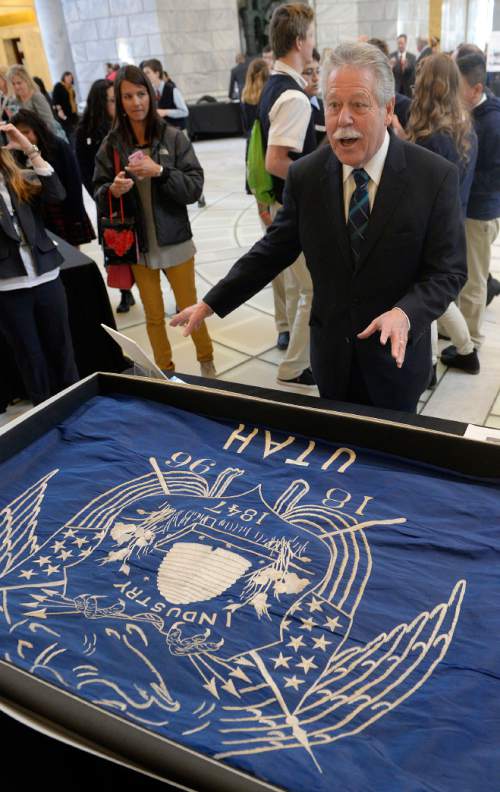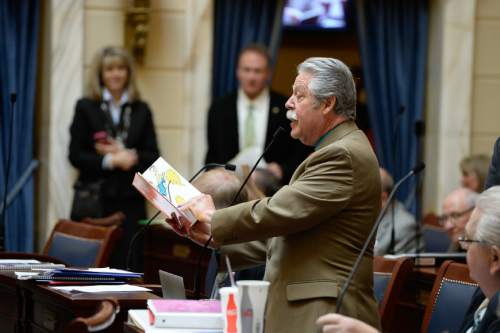This is an archived article that was published on sltrib.com in 2016, and information in the article may be outdated. It is provided only for personal research purposes and may not be reprinted.
Paul Gibbs said his aunt died because she didn't have access to health care and her cancer was detected too late.
"As someone who has lost a family member due to them not having health care insurance," Gibbs told lawmakers Tuesday, he believes "Utah has abdicated its responsibility as a family-first state."
That argument and others appeared to carry the day as the Senate Judiciary, Law Enforcement and Criminal Justice Committee voted 5-1 to send the Medicaid expansion proposal to the full Senate.
But SB77 — which would have Utah join more than 30 other states allowing full Medicaid expansion under the Affordable Care Act — likely will face a tough battle on the floor as several committee members said they would not support it without changes.
Sen. Gene Davis, D-Salt Lake City, said he's open to amendments but would never agree to a "cap" that would limit the number of people who could receive the benefit.
"Health care can't be discriminatory," he said.
Sen. Lyle Hillyard, R-Logan, expressed concern the state would be taking on too much with full Medicaid expansion, which is expected to provide coverage for about 110,000 residents. The fiscal note puts the bill's price tag at $50 million annually, beginning in 2020.
Hillyard said he doesn't believe Utah can afford the measure at this time, adding that lawmakers from other states have told him that real costs always end up exceeding projected costs.
Sen. Mark Madsen, R-Saratoga Springs, also warned about Medicaid costs exploding out of control.
Davis countered that the bill would pay for itself, saying Utah is losing $625 million in revenue that should be coming back to the state.
The University of Utah Hospital, he said, reports $100 million a year in uncollected bills — money he said would be recouped under SB77. The bill provides an opt-out if the federal government reduced the 90 percent match it has pledged for participating in the program.
Beyond all the talk of finances, Davis said the real reason to pass the bill is because it saves lives.
"Sometimes it comes down to doing the right thing and this is the right thing to do," he said.
Utah's Episcopal bishop, the Rev. Scott Hayashi, also spoke of the human cost of rejecting Medicaid expansion. He said lawmakers have been debating for three years and always have a reason to delay action.
"Last year it was waiting on a Supreme Court decision and this year they want to wait for a new president. Meanwhile, people are dying," he said.
Evelyn Everton, of the Utah chapter of Americans for Prosperity, spoke against the bill saying it would only increase the tax burden on families.
"Expanding Medicaid is not the answer to the problem," she said.
Davis said he hopes to overcome objections on the floor by explaining the program's benefits.
"There are ways to pay for this," he said. "When there is a will there is a way and the Legislature just hasn't had the will to help these people so far."







